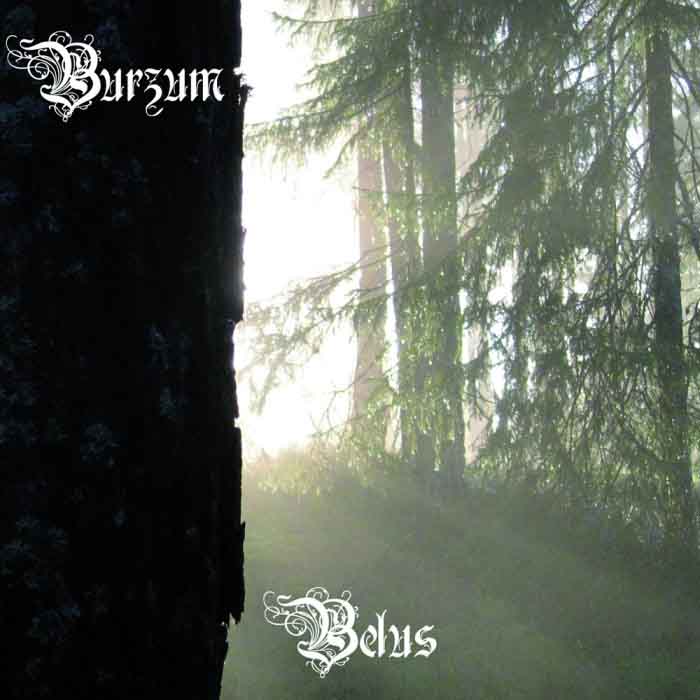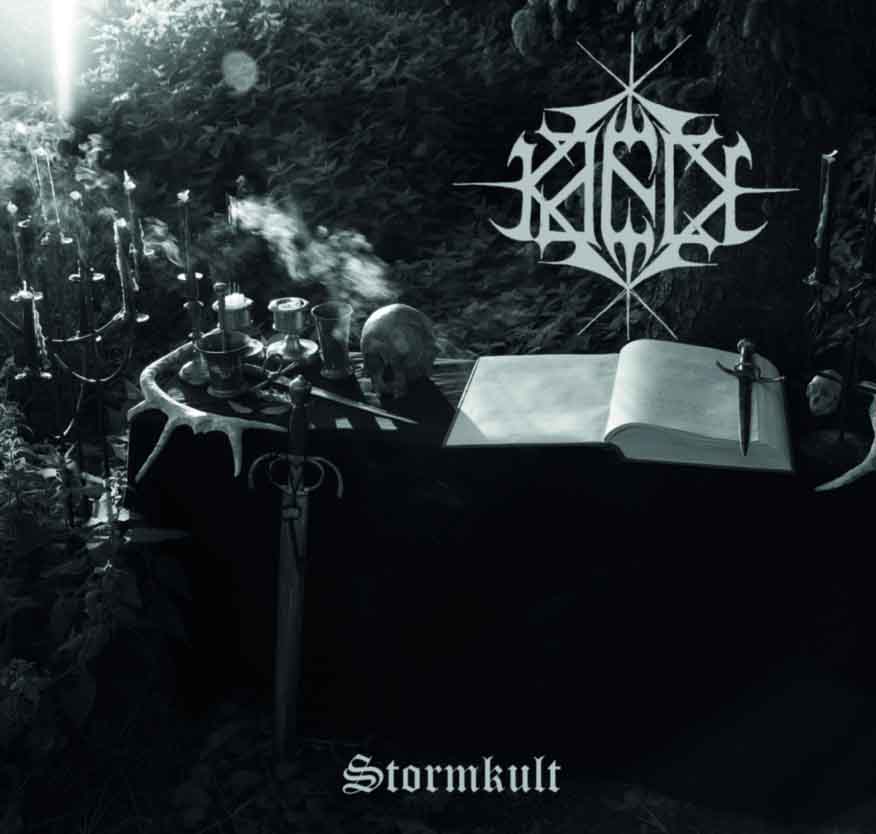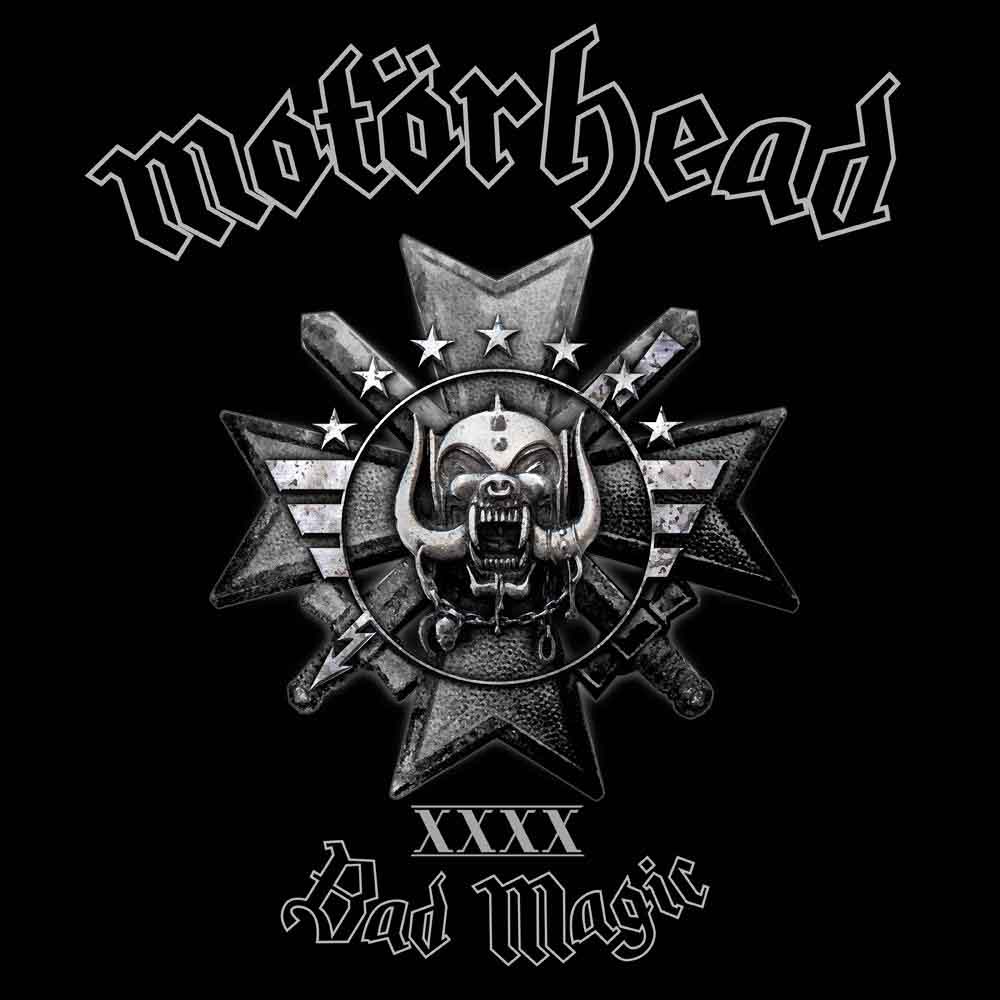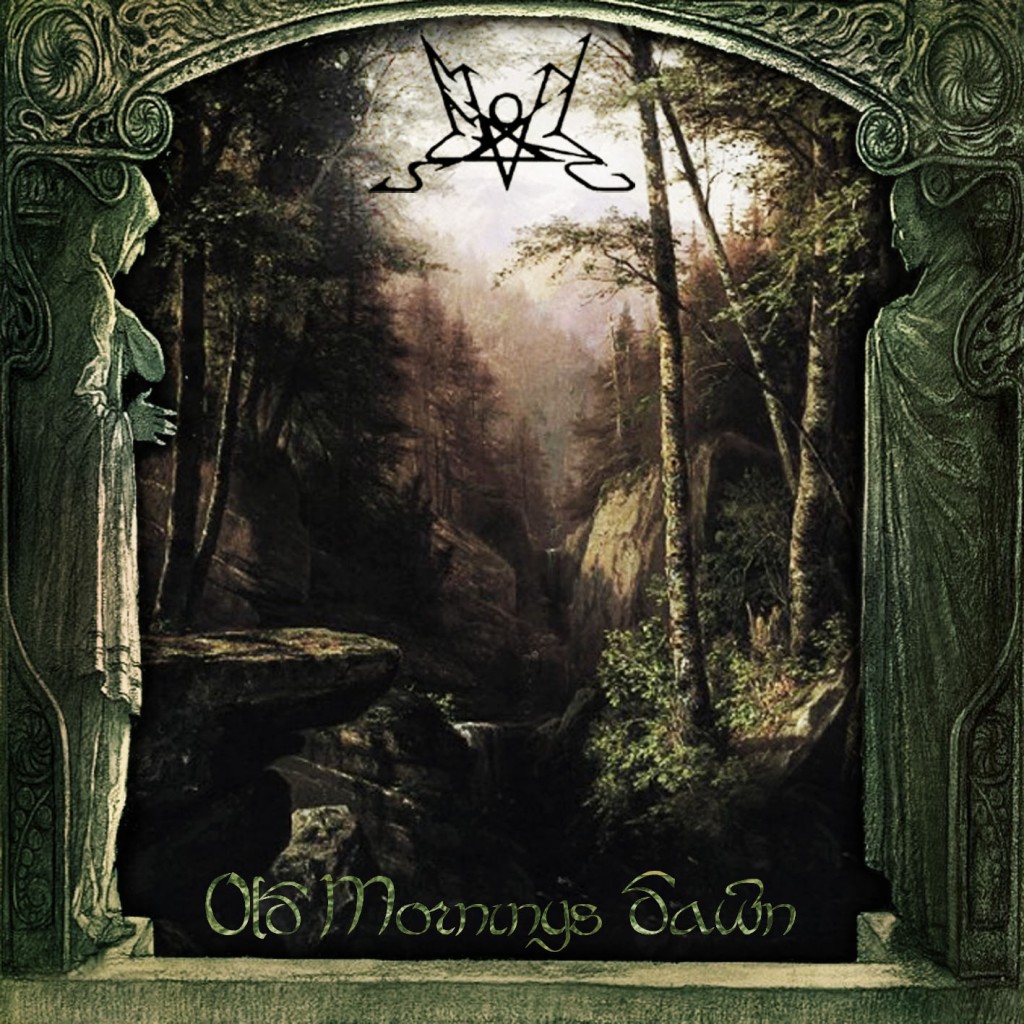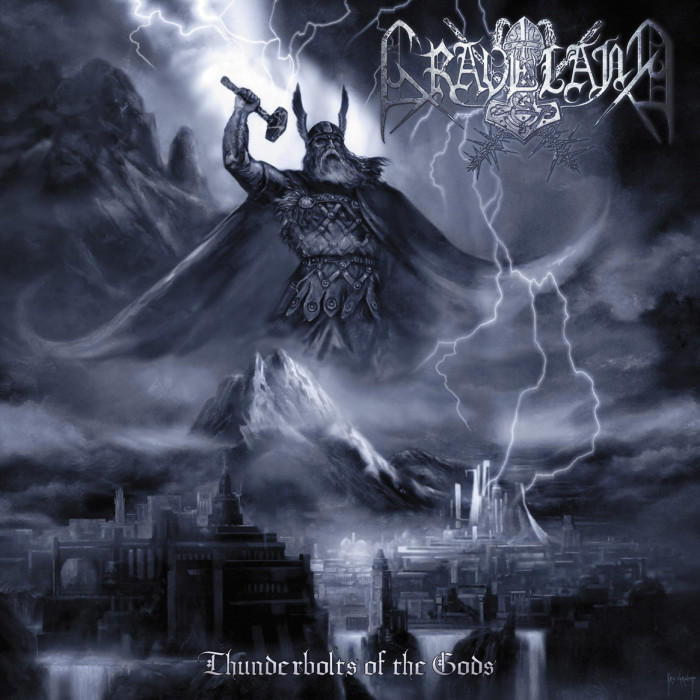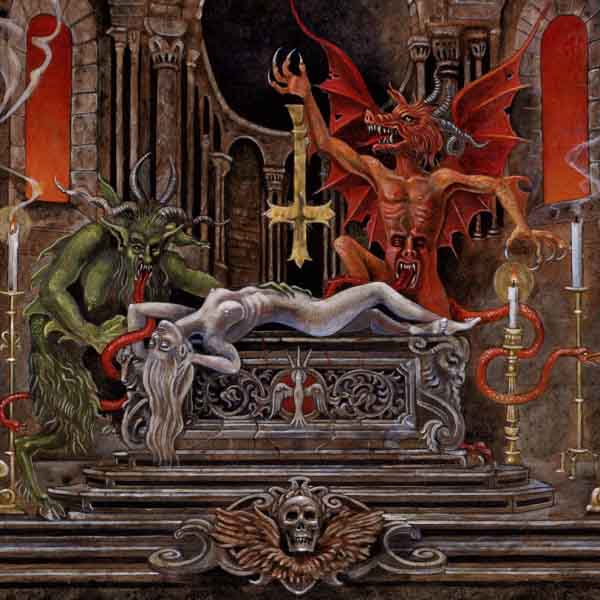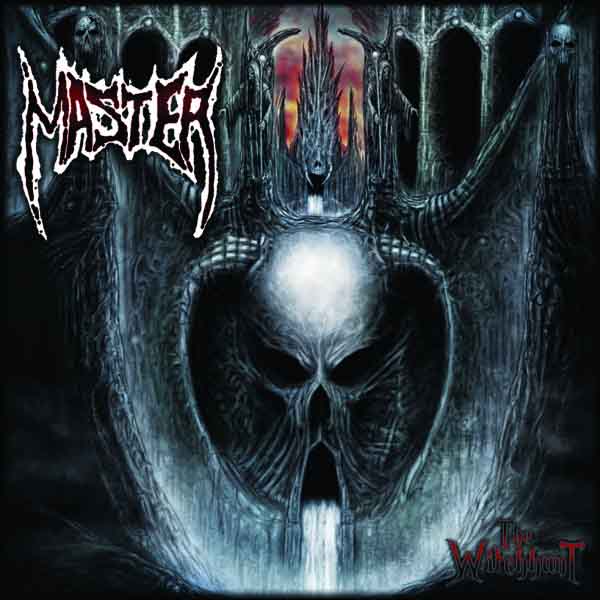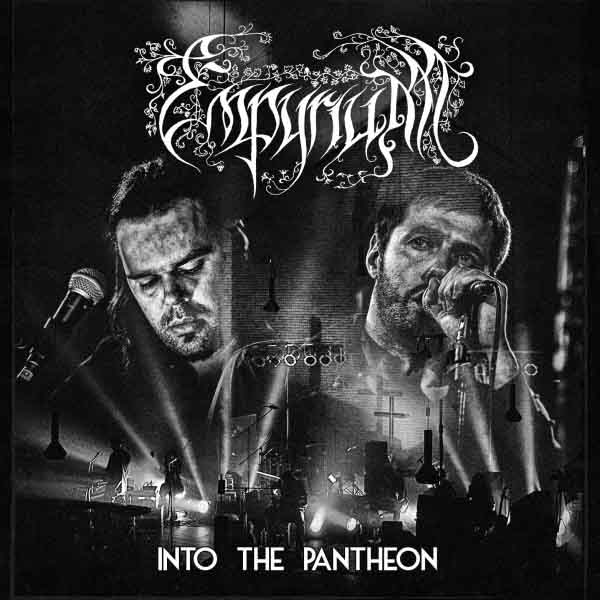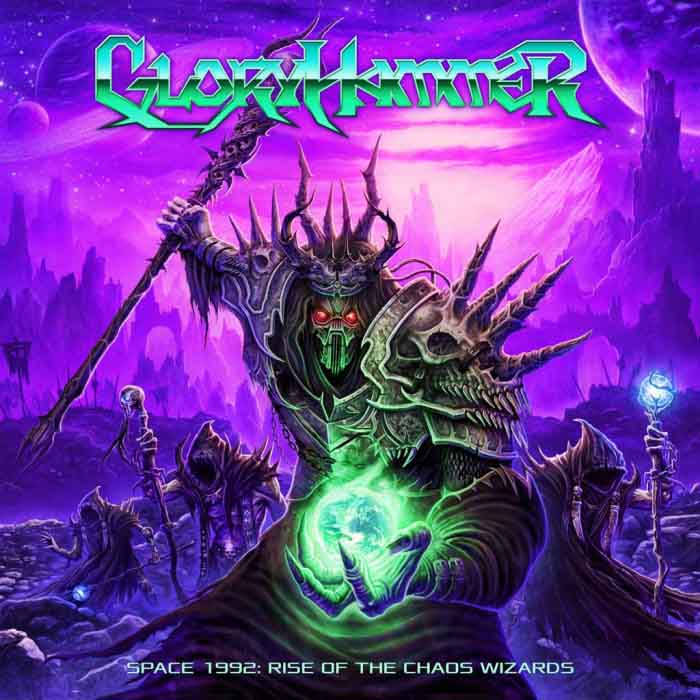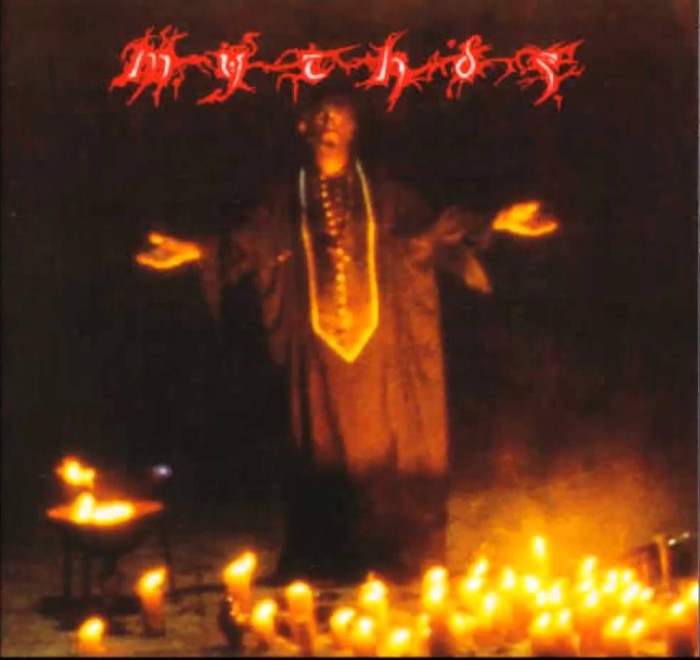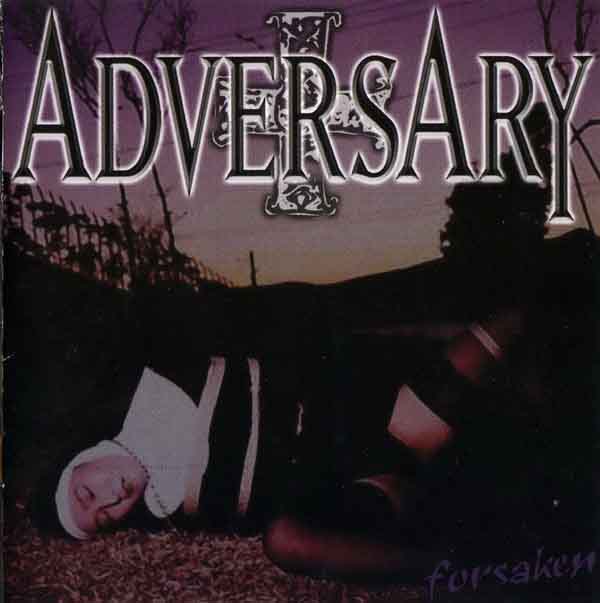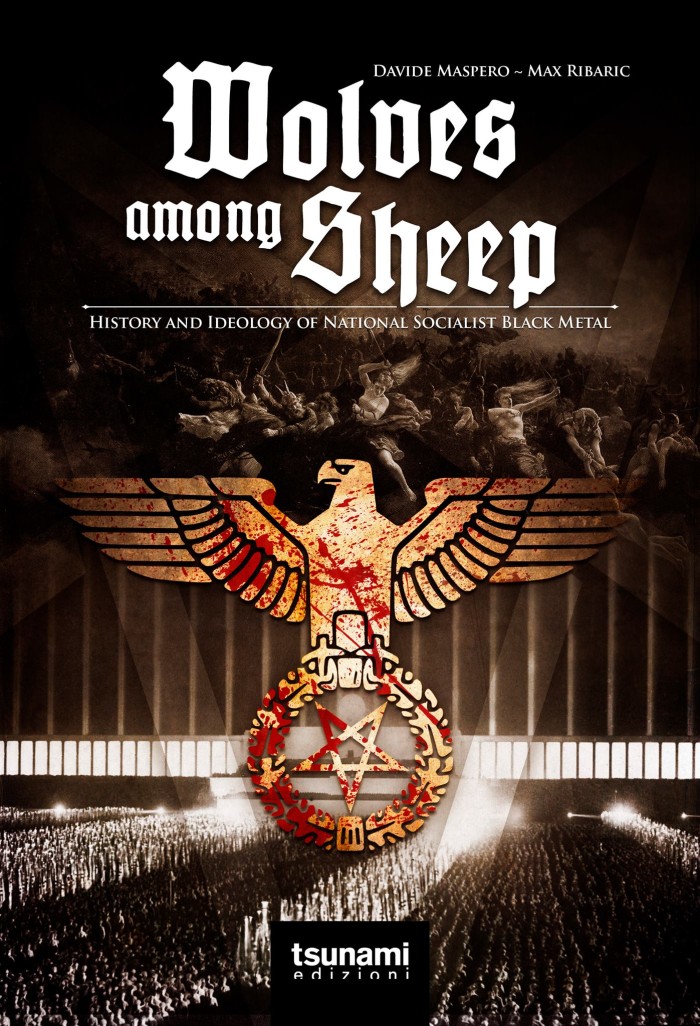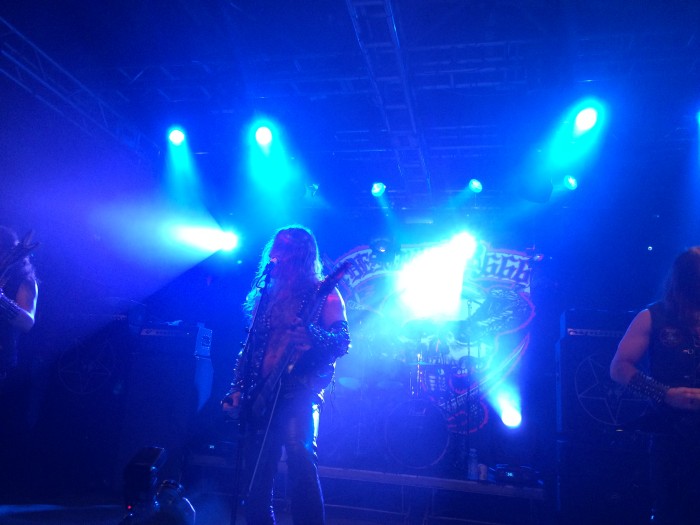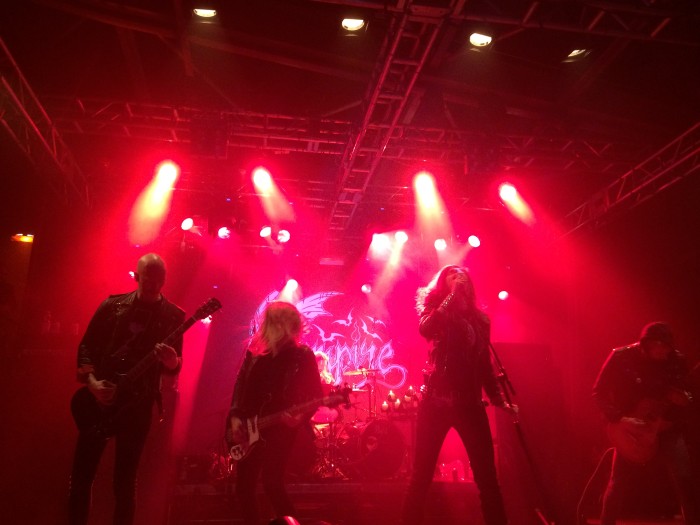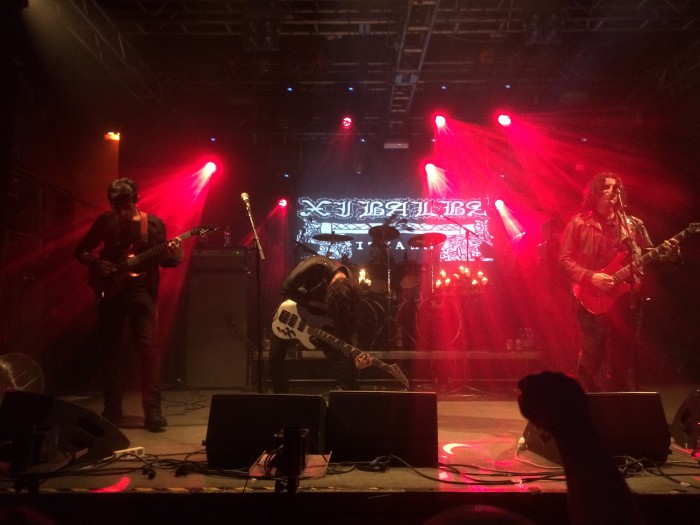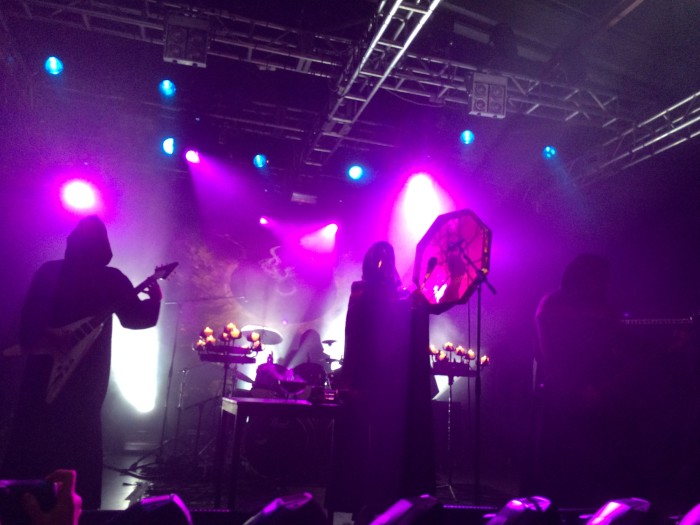
Perhaps it was to be expected from the quality of their earlier works, but Sadist’s Hyaena was one of the high points of what I listened to in 2016. With that in mind, I took the opportunity this Italian band provided to perform an email interview, with some hope of getting some insight into what makes Sadist themselves.
The band’s vocalist (Trevor Nadir) fielded my questions, discussing the past, present, and future of the band and giving us a better picture of what went into Hyaena in particular.
You formed in 1990, right in the middle of the first major flowering of death metal. What was the metal scene in Italy like back then?
TREVOR: Happy Metal Year!
The 90’s were very important for the Death Metal. Death, Cynic, Cannibal Corpse, Carcass, Deicide, Obituary, Morbid Angel and many others have contributed to birth and consolidation of the genre. In our country there were many Death Metal bands. It was certainly much more difficult, the correspondence with the other bands was only through physical mail. I’m very close to Death Metal of the 90s, for me the music stopped at that time, have a nostalgic and I would go back to those years. Sadist was the first band in Europe to add keyboards to Death Metal, we have always been a band that likes to experiment, keyboards were a strange thing, especially in those years, but we are very proud, this is our trademark, of which we are proud of still!
This is a more obvious question, but who are your influences? Have they changed with time?
TREVOR: Each of us listens to different music, perhaps for this reason, the sound of Sadist is contaminated with various styles. Sadist is absolutely a Techno Death Metal band, although in our sound there are other inspirations too: We all love Italian 70’s prog and ethnic music as well. In the past we experienced may ethnic instruments but the new album Hyaena, although it may be misleading, this is not an album about Africa, but on a concept centered around a ruthless predator, who lives in Africa.
We are professional people, we like to be prepared before to put out a new album and we always need to be satisfied of it, first of all. Sadist is a band devoted to technical, Tommy, Andy and Alessio are very prepared musicians, people who have dedicated their lives to their instruments, and very serious guys with one and only personal goal: to always improve. The technique is certainly important but, above all, we must think about the songwriting, the technique must be functional to the music and not an end in itself.
Building off the previous question – how has it changed in the last 25 years?
TREVOR: 25 years ago it was different, it was definitely difficult. Today we are doing interviews via email, on a day we can connect several times around the world, work remotely is something normal. Think of how hard could it be that only a few years ago, can reach somebody or something. However there is also something that works worse, in fact I think that today, it’s all too much and take away, music, bands are increasingly less durable and is no longer the time for rock stars. There is a great saturation and the band, especially the younger ones make great effort to stand out, it is increasingly a question of money. This is not a good time, we hope that the trend changes.
What inspired you to make a concept album about hyenas?
TREVOR: I always take care of the lyrics and the concept album of the album too. I’m a convinced naturalist, I always loved and respected very much the wild hyena. It’s a skillful hunter, smart, and very strong, many people believe it is only an animal that feeds on carrion, a thief, a street sweeper, but this is a myth, the hyenas are ruthless hunters, animals with incredible strength and intelligence, adaptable to any situation. Inside text can be found habits of the herd, hunting tactics, ancient legend which tells that the hyena is ride from the devil, the brutal nature of the animal devour their prey alive. Our music is brutal and the combination with the hyena was something natural, we are talking about an extremely brutal animal. We were lucky enough to pose for new photos with a skull of a hyena, who died in 1888, and we have thank for that all the staff of the Museum of Natural History “G. Doria” in Genoa, Italy.
I love Hyaena…

Hyaena strikes me as, at least in part, inspired by recent developments in metal and progressive music (although I can hear some of this on the previous album as well). Is this your intent? Any particularly recent musical influences of interest?
TREVOR: I would say no, simply Season in Silence was supposed to be a springboard to do better next time and we believe that Hyaena is now the most mature album of the band. Every Sadist’s album has different sounds, We are a band that remains faithful to experience, which is why our albums sound different from one another. Season in Silence is colder, both for the lyrics and the music, with Hyaena instead we resumed ethnic and tribal instruments, close to Mediterranean tradition. It’s hard to make terms of comparison… Although, as mentioned before, We are certain that this is the best chapter of the band up today.
Hyaena is a very Sadist album, containing our Death Metal matrix, but at the same time it was our intention to go back on the tribal and ethnic sounds, already used on albums like Tribe and Sadist. On Hyaena We wanted to get to the bottom and We’ve asked for help from Jean N’Dyaie, a great musician, a talented African percussionist. We simply wanted to bring to African culture, their sounds, their habits, We need all of this. Tommy has played many instruments linked to African tradition, like the oud and the santur, We did a thorough search in the traditional sound. Hyaena is a Death Metal, brutal, tribal, ethnic, Mediterranean and terribly Sadist album!
Since you’ve had a keyboardist from the beginning – how do you go about adding keyboard parts to your music?
TREVOR: As mentioned earlier, Sadist born with keyboards, this is our strong identity. Tommy is now known, as the musician playing two instruments simultaneously. It’s an incredible musician. Needless to say, many songs take ideas from the structure of the keyboards, the initial ideas on which is built the structure of the song. We could not think of Sadist without keyboards. We are then to be honest these keyboards are the instruments that characterize the disturbing and horrific soul of our band.
Many of the tracks on Hyaena avoid merely using simple verse/chorus structures. How formal/planned is your composition process these days?
TREVOR: We are a Techno Death Metal band, surely, it is true, however, that we want to keep in mind that we are talking about the songs and the structure has its own importance. Get Death, a band that was technically prepared, but it certainly can not be said that they did not songs, the whole song is what you have to stay ahead. We must try to give space to each individual instrument, absolutely, but one thing is certain, the song is not to be raped.
As a corollary to that, has the way you approach songwriting changed significantly throughout your career?
TREVOR : Sadist is a band that works as a team. Each of us carries out our task to the best of its ability. We are ambitious people, who do not save. Music and lyrics are walking side by side, while Andy, Tommy and Alessio were busy writing songs, I was far from the chaos of the city, and I took care of the lyrics. Each of us is aware of what it takes to the band, the certain sound, the particular phrase.The initial ideas are dictated by Tommy and Andy, though, with the new album, the contribution of Andy was particularly important; really inspired when writing riffs. Our music is generated accordingly to the issues addressed in this way we can have the right impact.
What’s your favorite part of Hyaena? What’s something you think can been improved?
TREVOR: We are very happy about the new album. Sometimes it happens that at the end of the recordings you think something could be improved, this has not happened this time. We worked in our Nadir Music Studios, by taking the time needed, working with the necessary calm you can afford to do things in the best way. Personally I am very attached to “The Lonely Mountain”, it’s the first videoclip for the album, a song that’s very Death Metal.
What other bands, metal or not, do you guys listen to/think are worth following these days?
TREVOR: There are so many good bands, but as mentioned before, are tied to Death Metal. The 70/80’s and 90’s have spoken and given a lot to the music, it’s hard to think of something new. Despite the young guys, all play very well, maybe what it is not is their originality or at least their attempt at being original. Having everything at once is perhaps killing their genius.
A question lifted from another interview we had on our site: What do you attempt to capture, express or communicate through your music? Or is this even the goal of music? Is music communication or decoration? What is the goal of your art?
TREVOR: Making music is an art form, certainly. The messages may be different. Playing Death Metal means venting their anger inward on the system, but at the same time means telling, through the lyrics, your thinking or your mood, this also peer through the melodies of the instrument. The music is not only heard, it should be read, viewed, stored.
What are your plans for the future like? Any upcoming touring or new material we should know about, or is it too early to say?
TREVOR: As for the promotion, by the time we organized with our label Scarlet Records, we want to make a great team effort, people are professional and prepared, and there is great mutual respect. But a good promotion also involves the live set, which is why we started to try, are not canonical songs, and certainly not easy to play on stage, you need preparation. About upcoming releases, together with our booking agency (Live Nation) are working on the next steps, we received a number of proposals, even for a couple of tours in Europe, we expect to be on stage as soon as possible, we are excited by the idea of play the new songs. We want to do our best, in any event, provide a spectacular show to the public , carry the name Sadist as high as possible, and then who knows, reprint the first album and think of a new album. We’ll play at the next Hellfest, and other festival, and we hope to play in the USA; we have many friends and fans who are waiting for us.
If you have any closing remarks you want to make, now is a good time to write them.
TREVOR: For many years I documented the animal in question. I’m really interested, especially for its hunting techniques, although not underestimate the importance of the pack and hierarchies within the same. Animals are crazy, very strong, resistant, challenging and hunt prey much larger than them, and at the same time you also have to cope with other predators, much larger. In this respect, according to what was said earlier, is the number to make a difference. The hyena is a voracious predator that brutally tears apart its prey, an unwitting and innocent murderess. Not scavengers, nor thieves, and they don’t eat only carrion, absolutely not, indeed, are sometimes other animals, such as lions, hyenas to steal the hunted. For many years I document, through books, movies, stories. Television is a stupid means, however, in the 80’s and onward, it allowed me to deepen this interest, thanks to interesting documentaries.
The hyena is an incredible animal, charming, because it’s my favorite predator. We must dispel the myth, the hyena is not only a scavenger carnivore, it also feeds on carrion, but is a skilled hunter, which has a strong team spirit and where within the song applies a strict hierarchy, where the matriarch has absolute power. He saids that the devil comes in the night riding a hyena, and that that the hyenas dig up the corpses. After their death the eyes turn into stones, and Zambezi sorcerers, devourers of men, took the form of a hyena, they appeared to the dead, that they rose and were torn to pieces. Around the campfire, it consumes the sacrifice of a young goat, putrid flesh of zombies and fresh meat for the last dinner. All of this is “The Devil Riding the Evil Steed”.
All the best to you, staff and readers. Stay Brutal!
Trevor Sadist
No CommentsTags: 2016, death metal, hyaena, interview, modern metal, sadist
